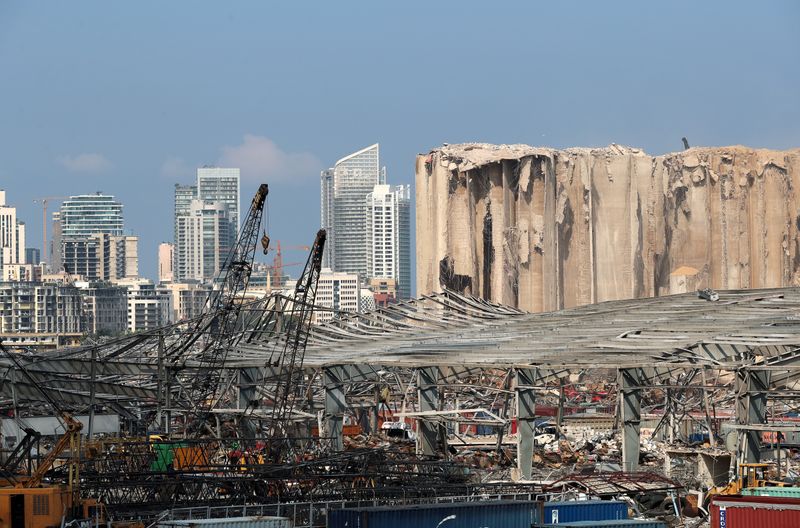
BEIRUT (Reuters) – Lebanon’s authorities signed a contract this month with a German company to clear dangerous material stored for more than a decade at Beirut port, the site of a seismic blast in August that killed about 200 people and wrecked swathes of the capital.
At least some of the chemicals the German firm will remove had been in storage at the port since 2009, although the statement did not give precise details.
The fact that it took about three months since the blast to sign a deal to remove dangerous material still left at the shattered port, which lies in the heart of Beirut, will add to public frustration and a sense of political drift in a nation whose economy has imploded after years of mismanagement and corruption.
Many Lebanese, particularly those who lost homes or who are still working on repairs since the August 4 blast, are angry that results of an investigation have yet to be released.
“One hundred days after the national tragedy of the Beirut port explosion, one hundred days of investigation engaging serious international expertise and still no clarity, no accountability, no justice,” UN special coordinator for Lebanon, Jan Kubis, tweeted on November 13.
He briefed the UN Security Council about Lebanon, citing a lack of clarity about the probe despite “numerous appeals and petitions of citizenry” for an impartial investigation.
The cabinet quit after the blast but is still acting in a caretaker role, as Lebanon’s top politicians, many of whom have been in and out of power for decades under a sectarian power-sharing system, have yet to agree on forming a new government.
The state news agency had said on Wednesday a contract with Combi Lift was signed. It did not give the details that were later provided to Reuters.
The ammonium nitrate that exploded in August had been unloaded at the port in 2014. The authorities ignored several warnings by officials about the dangers of storing the material there.
The authorities have detained 25 people, including port and customs officials, and say the probe is moving as fast as possible.
Reporting by Beirut bureau; Writing by Ghaida Ghantous; Editing by Edmund Blair




